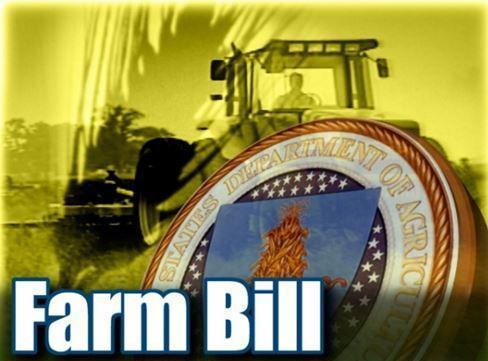Farmers at risk if lawmakers can't agree.
With the federal government reopened and a debt ceiling crisis averted for now, Congress has turned its attention to another important task: passing a farm bill.
The farm bill is a multi-year piece of legislation that governs agricultural and food programs. The legislation traditionally has focused on prices for staple commodities, like corn, soybeans, wheat, cotton, rice and dairy, but the breadth of the bill has changed since the 1930s. The bill now covers things like conservation, horticulture, bio-energy and nutrition-assistance programs. When the most recent farm bill was passed in 2008, the cost of the bill over five years was $284 billion.
In recent years, the parts of the bill separate from commodity prices have come into contention as members of Congress try to reduce government spending. The biggest point of contention is the federal funding for nutrition assistance — or food stamps. In 2008, the bill allocated $189 billion to nutrition assistance. Today the House’s version of the bill would decrease funding for food stamps by $40 billion over 10 years while the Senate’s version would only trim $4 billion out of the program.
Rep. Ed Whitfield, R-Ky., wrote a recent op-ed about the importance of the farm bill to farmers in the United States, especially Kentucky. Farmers depend onprovisions provided by the bill, including crop insurance and other government subsidies.
“It is hard for these families to have the stability and certainty needed to run their farms without a long-term farm bill with robust crop insurance provisions,” he said in the op-ed. “That is why reaching an agreement between the House and Senate is so important.”
Most recently, the House and Senate each passed their own versions of a farm bill. Now, the bill must go to a conference committee where the committee will try to sort out the differences between the two bills. House Speaker John Boehner, R-Ohio, appointed members to the House conference committee, and work on the bill is set to begin later this month.
A deal on the farm bill has been much anticipated for more than a year now. Most of the provisions of the farm bill are set to expire Jan. 1, and unless Congress can pass a new bill before then, it could have serious consequences for farmers in Kentucky and all over the country.
For example, the lapse of the farm bill would result in the expiration of dairy safety net programs. Joe Cain, national affairs and political education director for the Kentucky Farm Bureau spoke to the General Assembly’s agriculture committee on the issue. If nothing is done by Jan. 1, the public could see the price of milk rise to $5 or $6 per gallon in February or March.
“The dairy industry right now is probably the one that is most in question,” Cain said.
However, farmers don’t seem particularly worried. Cain told the committee that he believes a farm bill will be passed fairly quickly.
Wayne Hunt, president of Agri-Chem in Hopkinsville, is also confident that Congress will act on a new farm bill before the deadline. He thinks Congress will almost approach it like it approaches the budget; once they hit the expiration of the farm bill deadline, they’ll pass a temporary bill effective for three months at a time until they can negotiate a more permanent agreement.
“It looks like, right now, they will pass one,” he said. “So far the impact, the change to farming, is it will be kicked down the road … the overall impact hasn’t been detrimental.”
***
Reprinted from the Kentucky News Press Service
Article By Carla Jimenez
Kentucky New Era
- Log in to post comments



























